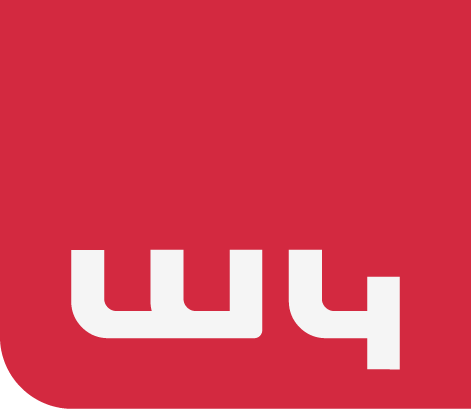Germany is embracing the digital revolution! Starting January 2025, electronic invoicing (e-invoicing) will become mandatory for both B2B and B2G transactions as part of the Growth Opportunities Act. Similarly, Switzerland has also implemented specific regulations that mandate e-invoicing for certain transactions, such as deliveries to the federal government.
This shift to e-invoicing brings a host of advantages: it modernizes business processes, reduces administrative burdens for companies, and enhances tax compliance. In this blog article, we will guide you on how to prepare for these new e-invoicing regulations by utilizing Odoo as your ERP system.
While our article article primarily focuses on the current discussions and regulations in Germany, the topic is also highly relevant to companies in Switzerland and other regions looking to digitalize their business processes and adopt e-invoicing practices.
E-Invoicing Requirements: Who Needs to Comply?
.webp?width=727&height=485&name=e-rechnung_805361618.webp%20(1).webp)
The e-invoicing requirement does not apply to all companies. Below you will find out who it specifically applies to:
B2B Transactions with German Involvement: The obligation to issue e-invoices applies to B2B transactions where the supplier is based in Germany and the goods or services supplied are subject to tax in Germany. This means that any business entity supplying goods or services within Germany must comply with the e-invoicing mandate, ensuring that all invoices are issued electronically in a format that meets the prescribed standards. This requirement aims to streamline tax processes and enhance compliance, making it easier for German tax authorities to track and verify business transactions.
Phased Implementation: The obligation to issue e-invoices is being phased in based on company size and turnover. Larger companies are required to adopt e-invoicing first, followed by medium and small-sized enterprises. This staggered approach ensures that businesses have adequate time to prepare and adapt their systems to meet the new requirements, minimizing disruption and allowing for a smoother transition to electronic invoicing.
Specific E-Invoice Formats: The mandate requires specific e-invoice formats, such as XRechnung and ZUGFeRD, to ensure data compatibility and standardization. These formats are designed to facilitate the seamless exchange of invoice information between different systems and stakeholders, enhancing efficiency and reducing errors. Companies must ensure that their invoicing systems are capable of generating and processing invoices in these formats to comply with the regulations.
Domestic and Cross-Border Transactions: The e-invoicing requirement covers both domestic transactions between German companies and cross-border transactions involving foreign companies operating in Germany. For domestic transactions, this means that any invoicing between companies registered in Germany must be done electronically. For cross-border transactions, foreign companies supplying goods or services to German companies must also issue e-invoices, provided that the transactions are taxable in Germany. This inclusive approach ensures that the benefits of e-invoicing, such as reduced administrative burdens and improved tax compliance, extend to all relevant business interactions within and beyond German borders.
Exceptions to the e-invoicing requirement

There might be specific exceptions or exemptions for certain industries or transaction types. These exceptions are typically based on the nature of the business, the type of goods or services provided, or specific regulatory considerations. It is important for companies to verify whether any such exceptions apply to their operations to ensure full compliance with the e-invoicing mandate. For example:
Intra-Community Deliveries:
Intra-Community deliveries, which involve the movement of goods between companies with VAT identification numbers within the EU, are exempt from the e-invoicing requirement. This exemption applies to transactions where goods are transferred between EU member states, allowing businesses to continue using their current invoicing methods for these specific transactions.
Simplified Invoices:
Invoices with a total amount of less than €250 are also exempt from the e-invoicing mandate. These simplified invoices can still be issued in paper format or another non-structured electronic format, providing flexibility for small-value transactions and reducing the administrative burden on businesses for low-value sales.
Deadlines and Transition Phases for E-Invoicing Adoption in Germany
Gradual Implementation of E-Invoicing
To ensure a smooth transition to e-invoicing, Germany has set specific deadlines and transition phases:![]() From January 1, 2025:
From January 1, 2025:
All German companies must be capable of receiving and processing electronic invoices. During this phase, companies are allowed to continue using paper invoices or other electronic formats alongside e-invoices, provided the recipient explicitly consents to the format used. This phase aims to familiarize businesses with e-invoicing systems and allow them time to adjust their processes accordingly.![]() From January 1, 2027:
From January 1, 2027:
Companies with an annual turnover exceeding €800,000 must issue invoices exclusively in electronic format. This requirement targets larger enterprises first, leveraging their greater resources to lead the way in adopting e-invoicing. This phase ensures that high-volume transactions are streamlined and that these companies set a standard for smaller businesses to follow.![]() From January 1, 2028:
From January 1, 2028:
E-invoicing becomes mandatory for all German companies, regardless of size or turnover. At this point, all invoices must be issued electronically, marking the full transition to a digital invoicing system across the country. This final phase aims to complete the digital transformation of invoicing practices in Germany, bringing the benefits of efficiency, accuracy, and compliance to all businesses.
Implementing E-Invoicing with Odoo: Key Considerations and Benefits
By implementing an ERP solution like Odoo, businesses can prepare for the upcoming e-invoicing mandate in Germany, ensuring compliance while also benefiting from increased efficiency and reduced administrative burden associated with invoice processing. Odoo's comprehensive features streamline invoicing, from creation to storage, making it an ideal choice for companies transitioning to e-invoicing.
Considerations When Choosing the Best ERP Solution for E-Invoicing
Format Compliance
Germany's e-invoicing mandate requires specific formats such as XRechnung and ZUGFeRD to ensure data compatibility and standardization. Odoo can be configured to generate invoices in these required structured electronic formats. This capability ensures that all invoices meet the legal standards, facilitating seamless integration with recipients' systems and compliance with regulatory requirements.
Automated Processing
Odoo can significantly enhance the invoicing process by automating the creation, validation, sending, and receiving of electronic invoices. Automation streamlines the entire process, reducing manual errors, speeding up transaction times, and ensuring that invoices are consistently formatted and compliant. This leads to greater efficiency and allows businesses to focus on core operations rather than administrative tasks.
Integration
Odoo integrates smoothly with various e-invoicing platforms and government portals for the seamless submission and receipt of e-invoices. As a certified Peppol access point, Odoo can directly connect to the Peppol network for e-invoice exchange without requiring an intermediary service. This direct connection allows for efficient and secure submission and receipt of e-invoices across the Peppol network, simplifying the process for businesses. Peppol is one of the four available options for transmitting e-invoices to customers connected to federal invoice submission portals such as ZRE and OZG-RE.

Data Management
Effective data management is crucial for e-invoicing compliance. German regulations mandate a 10-year retention period for invoices, starting at the end of the calendar year in which the invoice was created or delivered. Odoo helps manage and store invoice data securely, ensuring that all records are retained for the required period and are easily accessible for audits and compliance checks. This secure data management capability ensures that businesses meet the retention requirements set by the German Fiscal Code (AO) and the German Commercial Code (HGB).
Reporting
Odoo can generate comprehensive reports to help track e-invoice compliance and provide necessary data for audits. These reports offer insights into invoicing activities, enabling businesses to monitor their compliance status, identify any issues promptly, and maintain accurate records for regulatory purposes. This feature is essential for maintaining transparency and accountability in financial operations.
Scalability
As e-invoicing requirements evolve, businesses need a flexible solution that can adapt to regulatory changes. Odoo is designed to be scalable and can be updated to accommodate new e-invoicing regulations and standards. This adaptability ensures that businesses remain compliant with the latest requirements without significant disruptions to their operations.
By considering these key aspects, businesses can leverage Odoo to successfully implement e-invoicing, ensuring compliance with German regulations while benefiting from improved efficiency, reduced administrative burden, and enhanced data management.
W4 Odoo Services: Your Partner for Successful E-Invoicing with Odoo
The switch to electronic invoicing is a crucial step for many companies. To meet legal requirements and reap the benefits of e-invoicing, a reliable software solution is essential.
At W4, we support you in the successful implementation of Odoo in your company. With our extensive experience and expertise in Odoo and e-invoicing, we guide you through every step of the process:
Consulting: We analyze your individual requirements and advise you on the selection of the appropriate Odoo apps and modules for e-invoicing and related processes.
Implementation: Our experienced Odoo specialists handle the entire setup and configuration of Odoo in your company, ensuring a smooth transition.
Training: We provide comprehensive training for your employees on how to effectively use Odoo, maximizing its benefits.
Support:Our competent support team is available to assist you even after the successful implementation, ensuring ongoing success.










